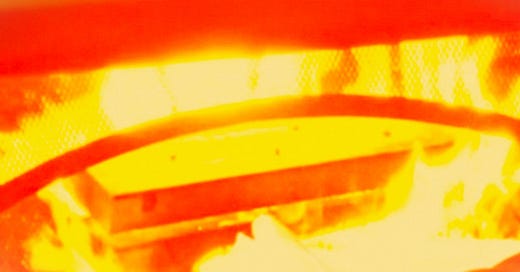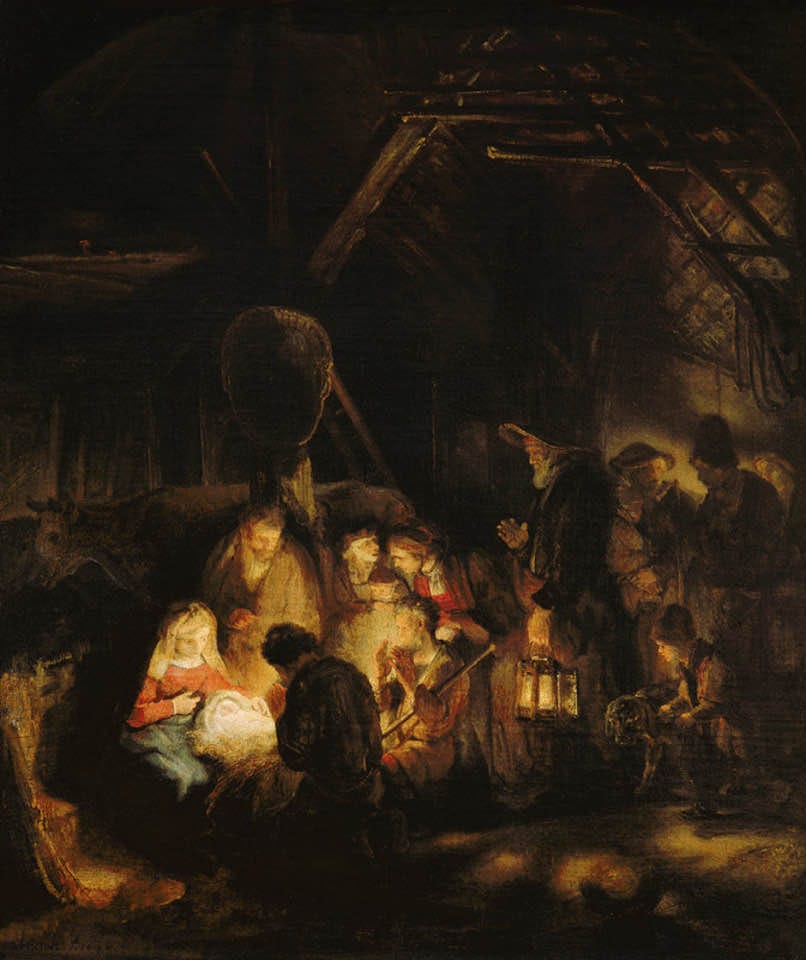A recent posting by our esteemed CEO, Editor-In-Chief, and Publisher for God of the Desert Books got me to thinking about the question of who will go to hell. David described his experiences with the Evangelical Christian movement in Indiana, and one of the issues he grew concerned over was their belief about hell, more specifically, that anyone who was not an Evangelical Christian would end up there. This is a harsh teaching, but then again, hell is a harsh reality.
Other than often reviewing Catholic apologetics that counter Evangelical Christian claims, I do not have an intimate knowledge about their belief system; however, Evangelicals are correct that hell exists. As to who will end up there is the area where we may differ. Below is the Catholic perspective, as best as I can describe it.
A Vision of Hell
The Blessed Mother gave the visionaries at Fatima a terrifying vision of hell. She showed them a vast sea of fire, and in this fire were plunged the demons and the souls of the damned. The damned souls were like transparent burning embers in human form, while the demons resembled “frightful and unknown animals.” Through this vision, our Blessed Mother wanted to remind the world that hell does exist and that we must all repent to save ourselves from this fate. While we could say this is worthy of our contemplation, this vision is considered a private revelation, not something we must believe as part of the deposit of the faith.
However, hell’s reality is not in dispute. The Catholic Church affirms its existence in paragraph 1035 of the Catechism: “The teaching of the Church affirms the existence of hell and its eternity. Immediately after death the souls of those who die in a state of mortal sin descend into hell, where they suffer the punishments of hell, ‘eternal fire.’ The chief punishment of hell is eternal separation from God, in whom alone man can possess the life and happiness for which he was created and for which he longs.”
Hell does not go away if you choose to disbelieve it, or “wish it into the cornfield,” as my wife often quotes a famous Twilight Zone episode. In other words, by saying you don’t believe there is a hell changes nothing about its existence. It is far better to come to terms with its reality and to do something about it.
And I think hell’s existence teaches us several important things. One, hell tells us that this life counts, and that our lives here in this world are not meaningless. We cannot live our lives as if it will not matter in the next. Two, hell tells us there is justice. We will be judged by everything we do, and quite simply, if we lead evil lives, we will pay for it eternally in the next. Three, because it’s so important how we lead our lives, we need to be sure our belief system is the true one. The faith we choose, be it Catholicism or Protestantism, Evangelism, Judaism, etc. matters.
Is There No Salvation Outside the Church?
So, are Evangelicals correct that there’s no salvation except for Evangelicals? As they believe they have the true faith, it certainly makes sense that they would think so. As David described, Evangelicals believe that in order to be saved, you must accept in your heart that Jesus Christ as your personal savior. However, interestingly, the prayer to accept Jesus in your heart is not in the Bible. While it sounds nice, Christ never actually instructs anyone to do this.
The Catholic Church’s teachings on salvation, on the other hand, are based on Christ’s own teachings. As Jim Blackburn of Catholic Answers explains, “all Christians agree that Christ is necessary for salvation, as in, ‘I am the way, and the truth, and the life; no one comes to the Father, but by me (Jn 14:6).’” But as Jim explains further, “When speaking of salvation, Christ offered more details than just his words quoted above. For example, consider these three verses:
He who believes and is baptized will be saved. (Mk 16:16)
[U]nless you repent you will all likewise perish. (Lk 13:3)
[H]e who eats my flesh and drinks my blood has eternal life, and I will raise him up at the last day. (Jn 6:54)”
These three verses, as Jim explains, show that Christ associates salvation with the Sacraments of the Church, namely Baptism, Confession, and the Eucharist, respectively. Therefore, the Church is necessary for salvation. (I recommend reading Jim’s entire article for his complete argument.)
Who Will Go to Hell?
The Evangelicals of David’s association stated with some certainty who would go to hell, for example, a young girl’s Jewish grandmother (because she was Jewish and not a Christian). The problem is that they really had no business judging who and who would not go to hell. That’s because it’s not up to us but to God alone to judge.
While it is true that there is no salvation outside the Church, it is also true that Christ is the head of the Church (also from Jim’s article quoted above). Led by Christ, the Church’s presence on Earth provides that path of salvation. And God alone knows people’s hearts. We can’t really know the state of someone else’s soul, regardless of their faith or objective state of sin. The fact is that we do not know how Christ may have acted to save anyone, even in the last seconds of their lives.
Thus, the Catholic Church only tells us who is in Heaven—the canonized Saints, in other words. There is no corresponding list of people who are in hell. This is not to say that hell is empty, only that we cannot say for sure who is there.
For my own part, while I have great hope of making it to Heaven, that’s not for me to judge, or any other man for that matter. I must rely on God’s judgment and mercy. And while I’d like to say that I try to be a good man (and often fail at it) only for positive reasons, that of loving the Lord God with all my mind, heart, soul, and being, I would be lying. I also have a “healthy” fear of going to hell. So, if I want to avoid hell, I need to spread the good news of Christ and also to affirm the existence of hell. If we see people acting in an objective state of sin, we need to try our best to correct them so as to save them. But we cannot judge the true state of their souls. That’s for God alone to do.
The good news of Christmas is that God came to save us from the fires of hell. He wants all of us to be with him.







No one knows what our communication with God will be like once we leave this vale of tears. Christians and non Christians alike can be saved. To think that any of us can point to another and say they’ll be damned is really preposterous.
Alec, thank you for your thoughtful writing.